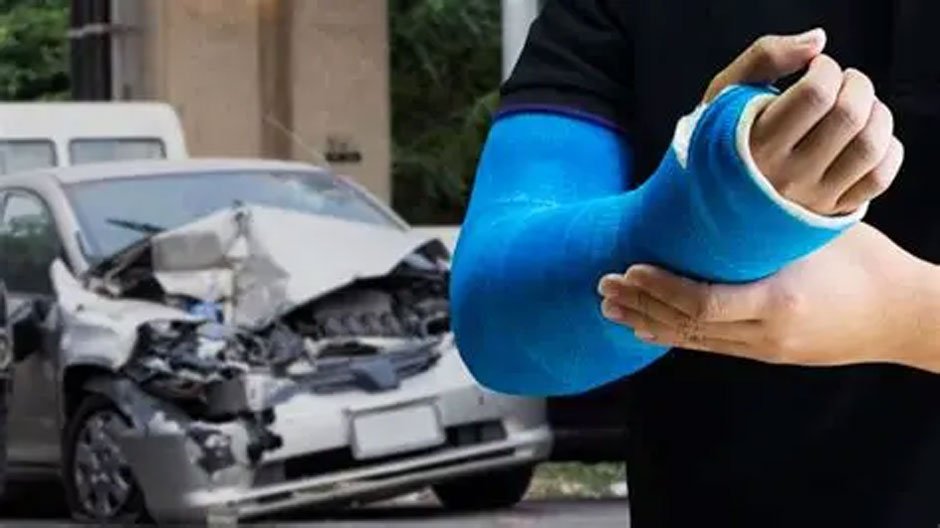Car crashes happen unexpectedly, often within seconds, and the aftermath can be overwhelming — physically, emotionally, and financially. While some accidents result in minor damage and no injuries, many lead to serious health issues. Knowing the common car crash injuries can help you recognize symptoms early and seek the right medical attention. In this post, we’ll explore the most frequent injuries caused by car accidents, how they happen, and what to do if you or a loved one experiences them.
Why Understanding Car Crash Injuries Matters
Car accidents exert a tremendous amount of force on the human body. Even at low speeds, the sudden stop or impact can cause your body to jerk violently, leading to injuries that may not be immediately obvious. Some symptoms appear days or weeks after the crash, making it essential to understand what injuries might be lurking beneath the surface.
Being informed about common injuries also helps you advocate for proper medical care and, if needed, legal or insurance support. Early diagnosis can improve recovery outcomes and prevent long-term complications.
The Most Common Car Crash Injuries
1. Whiplash
Whiplash is one of the most frequently reported injuries in car crashes, especially rear-end collisions. It occurs when the head and neck are suddenly jerked backward and then forward, causing strain or sprain of the neck muscles and ligaments.
Symptoms: Neck pain, stiffness, headaches, dizziness, and limited range of motion in the neck.
Whiplash can range from mild to severe and sometimes causes chronic pain if untreated. Treatment usually involves rest, physical therapy, and pain management.
2. Cuts and Bruises
In many accidents, broken glass, debris, or impact with the interior of the car can cause cuts, scrapes, and bruises. While these may seem minor, open wounds should be cleaned and treated promptly to avoid infection.
3. Broken Bones and Fractures
The force of impact during a crash can lead to broken bones or fractures, particularly in the arms, legs, ribs, and sometimes the collarbone or pelvis. These injuries can vary from small hairline fractures to severe breaks requiring surgery.
Symptoms: Severe pain, swelling, inability to move the limb, deformity, or inability to bear weight.
Prompt medical attention is critical to properly set broken bones and prevent complications.
4. Head Injuries and Concussions
Head trauma is a serious concern in car accidents. Even with seat belts and airbags, the force of a collision can cause the brain to move inside the skull, resulting in concussions or more severe traumatic brain injuries (TBI).
Symptoms: Headaches, dizziness, confusion, memory problems, nausea, sensitivity to light, or loss of consciousness.
If you suspect a head injury, immediate medical evaluation is essential as some symptoms can worsen rapidly.
5. Chest Injuries
The chest can suffer injuries from impact with the steering wheel, seatbelt, or airbags. Common chest injuries include bruised or fractured ribs, lung contusions, or internal bleeding.
Symptoms: Chest pain, difficulty breathing, coughing up blood, or visible bruising.
Chest injuries can be life-threatening and require urgent medical assessment.
6. Back and Spinal Cord Injuries
The spine is vulnerable in car accidents, and injuries can range from muscle strains to herniated discs or spinal cord damage. Spinal cord injuries are particularly serious and may result in partial or full paralysis.
Symptoms: Back pain, numbness or tingling in limbs, weakness, or loss of bladder or bowel control.
Anyone experiencing these symptoms after an accident should seek immediate medical care.
7. Psychological Injuries
Physical injuries are often accompanied by emotional and psychological trauma. Post-traumatic stress disorder (PTSD), anxiety, and depression are common following car accidents.
Symptoms: Flashbacks, nightmares, anxiety, irritability, or difficulty concentrating.
Mental health support is just as important as physical healing and should not be overlooked.
What to Do If You’re Injured in a Car Crash
- Seek Immediate Medical Attention: Even if you think your injuries are minor, get checked by a healthcare professional. Some injuries, like concussions or internal bleeding, may not show immediate symptoms but can be dangerous.
- Document Your Injuries: Take clear photos, maintain all medical records, and document your symptoms and treatments carefully. This information is vital not only for insurance claims but also if you need to consult an auto accident lawyer in Tulsa, OK, to protect your legal rights.
- Follow Up With Your Doctor: Injuries like whiplash or back pain may develop over time. Regular follow-ups help track your recovery and adjust treatments.
- Consider Mental Health Care: Don’t hesitate to seek counseling or therapy if you experience emotional distress after the accident.
Prevention Tips to Reduce Injury Risk
While not all accidents are preventable, practicing safe driving can reduce the risk of injury:
- Always wear your seatbelt properly.
- Follow traffic rules and speed limits.
- Avoid distractions like texting while driving.
- Maintain your vehicle to ensure brakes and airbags work properly.
- Drive defensively and stay alert, especially in bad weather or heavy traffic.
Final Thoughts
Car crash injuries vary widely from minor bruises to life-altering trauma. Recognizing the common types of injuries and understanding the symptoms is key to prompt treatment and better recovery. If you or someone you know has been in a car accident, don’t delay medical evaluation — even seemingly minor symptoms can be signs of serious injury.
By staying informed and prepared, you can protect your health and navigate the aftermath of a car crash with confidence.
